Published
- 04:00 am
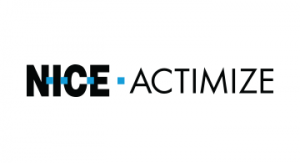
NICE Actimize (Nasdaq: NICE) today announced the launch of its newest platform, NICE Actimize Xceed, which integrates best-in-class AI, data intelligence, behavioral analytics, and insights within a unified cloud platform designed to bring agility to financial institutions of all sizes, including community and regional banks, that are looking to modernize their financial crime risk management solutions.
Xceed combines the most advanced capabilities of both Guardian Analytics and NICE Actimize providing full coverage for both anti-money laundering and fraud prevention.
With “Always On” AI-based technology, NICE Actimize Xceed’s self-learning capabilities immediately and autonomously adapt to new threats, helping financial institutions meet today’s dynamic risk management needs with laser accuracy, speed and simplicity, and without the need for a team of data scientists. The new platform, which includes the industry’s most advanced real-time behavioral analytics and machine learning capabilities, will offer simplified cloud deployments while optimizing operational resource efficiency.
The Xceed platform is the newest addition to the NICE Actimize offering and is joining X-Sight which is quickly becoming the leading platform for many of the largest financial services organizations worldwide. With the addition of Xceed, NICE Actimize now brings its unmatched AI and cloud technologies to financial services of any size, meeting the unique requirements of small and mid-size organizations that can now enjoy capabilities which up until now were available only for organizations at large scale.
“We are pleased to bring our customers the unique combination of proven expertise with best-in-class innovation in both Artificial Intelligence and the cloud, presenting a major opportunity to further support financial services organizations of all sizes. Xceed is based on the proven AI models deployed at hundreds of Guardian Analytics and Actimize customers, leveraging the best innovations of both and bringing the industry its most advanced machine learning capabilities for complete financial crime risk management coverage,” said Craig Costigan, CEO, NICE Actimize.
To learn more about Xceed, please join the upcoming webinar: “Xceed - The Power of Always on AI” on September 1, 2020. For additional information on NICE Actimize Xceed, please click here.
Related News
- 01:00 am
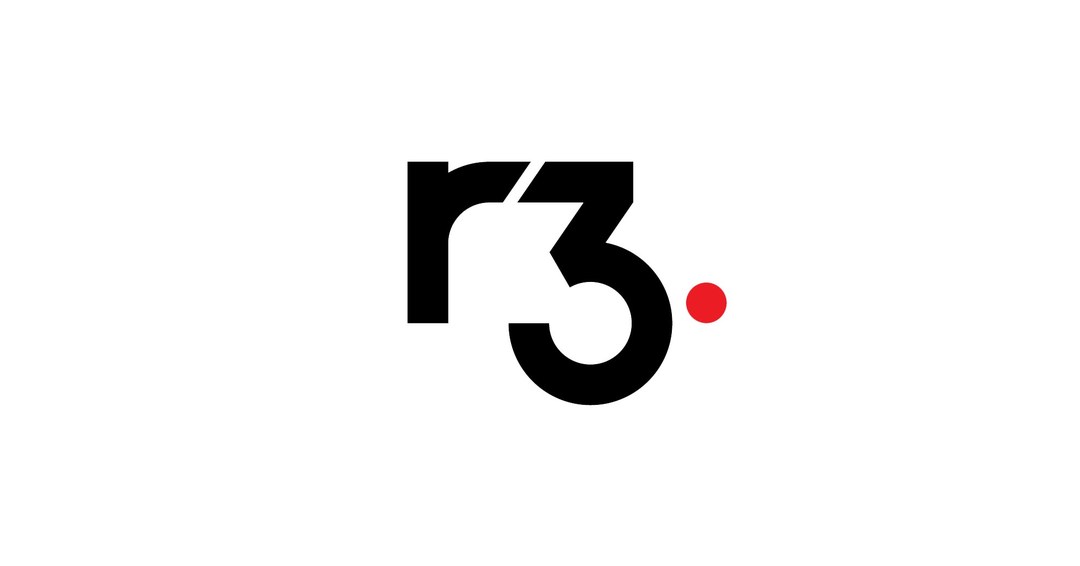
Becoming digital-first has quickly become a priority as companies all over the world navigate a new and challenging environment as a result of the COVID-19 pandemic. However, new technology solutions should optimise entire industries, not just individual businesses, says enterprise software firm R3.
97% of companies have benefitted from technologies enabling digital interaction during the pandemic1. The pandemic will likey lead to lasting change with 99% of firms now changing their technology strategy and operating model based on this new digital-first environment.2
The global crisis has not only reinforced the limitations of disparate, firm-wide systems, but also highlighted the urgent need to evolve to more transparent and scalable business processes, as well as access to real-time data. 80% of IT budgets currently are allocated to keeping legacy systems running3 and 9 out of 10 businesses report they’ve had their growth curtailed by old technology.4
While crisis conditions often breed caution, the unique nature of the current operating environment has meant firms who cut spending on innovation risk falling behind their competitors. Inefficient information exchanges cost a 10,000-employee business $26.5 million annually.5 Businesses have had to adapt to the ‘new normal’ in order to survive, and are placing more importance than ever on accelerating their digital transformation.
David E. Rutter, CEO of R3, comments: “History is littered with cases of businesses which failed to adapt to new technologies. Some continue to try to play catch-up, but many have lost the fight.
“The problem is often rooted in intra-firm, rather than inter-firm, thinking. Software vendors may be servicing industries that remain largely paper-based, and while their product offerings provide internal efficiencies and revenue gains, they don’t necessarily extend these values across their wider business network. Digital transformation at the industry – not just individual firm – level is the only path forward from this crisis.”
Of all the new technologies at their disposal, 75% of businesses consider blockchain as being key to driving digital transformation, and a fifth already have an enterprise blockchain solution in production.6
Blockchain’s immutable, distributed ledger enables businesses to transact directly, reducing transaction and record-keeping costs and streamlining business operations. On a blockchain, everyone involved in a transaction knows with certainty what happened, when it happened and can confirm other parties are seeing the same data.
Rutter continues: “If current solutions continue to be deployed on-premises, they are likely costing more and more to maintain. They may be getting more and more difficult to renew. And they definitely don’t enable end users to seamlessly transact with one another, because different instances of software do not communicate based on a shared view of the facts, or through a peer-to-peer network. The cost and inefficiencies that this generates are unacceptable in the current business environment.
“By delivering a truly digital-first application underpinned by blockchain, software firms can eliminate the trust and efficiency challenges in data exchange between their customers, and their wider business ecosystem.
“Deploying enterprise blockchain technology allows firms to deliver connected and transparent business networks that can overhaul the entire sector they serve. As digital industry transformation continues to gather pace, we will move from a world where everybody builds and runs their own distinct applications, which are endlessly out of sync, to one where everybody is using shared market-level applications, dramatically driving down deviations and errors.
“And this is all happening right now. Countless industries are already using blockchain and other advanced digital technologies such as AI in everyday business scenarios, optimising processes and systems that in many cases have remained stagnant for generations.”
___________________________
- 97% of companies had benefitted from technologies enabling digital interaction during the pandemic (Broadridge Next-Gen Technology Pulse Survey)
- 99% are now changing their technology strategy and operating model based on the new digital-first environment (Broadridge Next-Gen Technology Pulse Survey)
- Up to 80% of IT budgets currently allocated to keeping legacy systems running (IT Modernization: critical to digital transformation, Avanade)
- 9 out of 10 businesses have had their growth curtailed by old technology (IT Modernization: critical to digital transformation, Avanade)
- Inefficient information exchanges cost a 10,000-employee business $26.5 million annually (The Panopto Workplace Productivity Study)
- 75% of businesses consider blockchain as being key to driving digital transformation, and a fifth already have an enterprise blockchain solution in production (IDC)
Related News
- 04:00 am
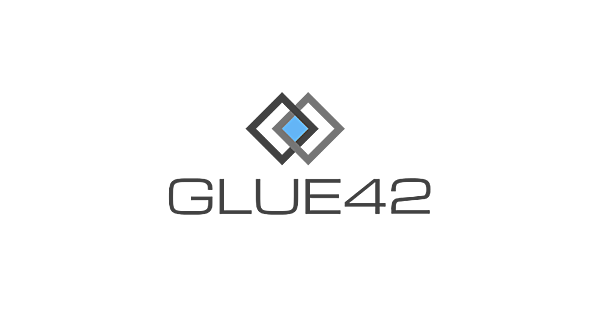
Glue42, the company that delivers integrated desktop experiences to financial institutions globally, and Leading Point Financial Markets, a financial services advisory and delivery partner, today announced a partnership to help clients provide a next-generation trading desktop experience.
Sales and trading activities are inherently complex and require equally complex software applications to manage data and workflows. Due to single monolithic applications and bloated technology stacks, financial organizations today find it hard to adapt to changing user, customer and regulatory needs. Those organizations that can design and build so called ‘composable enterprises’, i.e. modular portfolios of business capabilities, are able to lead front office innovation and achieve higher productivity.
As part of the partnership, Leading Point Financial Markets will help organizations define the best vendor strategy and ecosystem architecture to enable the core of the composable enterprise and optimize the desktop for the best-in-class experience. Glue42 will provide the underlying integration platform to delivers seamless user journeys and configurable workflows.
“Together, we will provide a unique mix of world-class implementation services and software,” said Dishang Patel, Partner, Leading Point Financial Markets. “In the short term, traders will gain unparalleled speed of visibility across applications so they can focus on generating alpha. In the longer run, firms will need to purchase and maintain less hardware, which will vastly improve the environmental impact and making it easier to meet their ESG policy.”
As a result of the collaboration, IT teams will be able to selectively replace or augment legacy systems, simplifying and automating complex processes, making for a leaner, system-agnostic and agile desktop. Front office teams will be able to interact with multiple systems and data sources directly from their financial desktops using only the best functionality of each application. This intelligent, user-driven desktop reduces noise and risk. With as much as 90 percent fewer clicks for basic tasks; traders can execute faster and generate 20 percent more alpha on average for their clients.
“The perfect storm of the post-Covid world and the evolving ‘interop’ innovation has created a period of reflection for many firms. For many organizations, the digital transformation was prematurely accelerated and the need for greater efficiency and process optimization is now stronger than ever,” said James Wooster, COO, Glue42.
“As organizations innovate and adapt to changing business needs, and vendors continue to deliver more modular capabilities, they will need to rethink how they source and deliver business solutions. This partnership will help firms gain higher front-office productivity much faster,” he continued.
For more information, read Glue42’s latest paper: Modernizing Legacy Systems: Why Loving Legacy Apps is Key to Capital Markets’ Digital Transformation. You can also watch a recording of the latest webinar: A Practitioner's View of Legacy Migration.
Related News
- 04:00 am
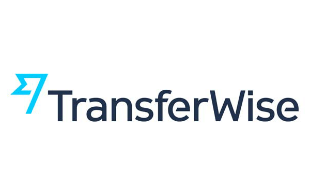
Mastercard (MA) and TransferWise, today announced an expanded partnership to enable the issuance of cards in any market around the world where Mastercard is accepted and TransferWise is licensed. Mastercard has built a strong partnership with TransferWise, working with the global technology company since its issuance of its first debit card in Europe in 2018. Since then TransferWise has issued over 1 million Mastercard’s globally.
TransferWise currently partners with Mastercard across the EEA, US, Singapore, Australia and New Zealand, with Japan due to launch later this year. This expansion of the relationship will allow a route to market in nearly all countries around the world.
TransferWise has a vision for its multi-currency borderless account to replace expensive, old world international banking for its audience of expats, freelancers, businesses and travellers. Its customers are increasingly using the borderless account as an international banking alternative, with new features including direct debits and instant international payments to friends. The Mastercard and TransferWise teams worked collaboratively to enable Apple and Google Pay, Fitbit and Garmin Pay across the EEA for all TransferWise cards.
In addition to card issuance, leveraging Mastercard Send™ TransferWise has launched the capability for TransferWise account holders to be able to send money in near-real time* to Mastercard cards in European countries including Spain, Romania, Bulgaria, Czech Republic, Hungary, Poland, Ukraine, Georgia, Croatia and Russia. Together, we are enhancing customer experience by enabling people to make international money transfers with greater speed and ease.
“We’re making it faster, cheaper and easier to move money around the world. To date over one million debit cards have been issued to people wanting to make the most of everything our borderless account has to offer. As we think about the next phase in our international expansion, we want to ensure this process stays just as convenient whether you need a debit card in the UK or Japan. Building upon our partnership with Mastercard is important in maintaining that high level of convenience around the world,” said Kristo Käärmann, CEO and co-founder of TransferWise.
Andrea Scerch, President of Processing Services, Mastercard said: “We are proud to be expanding our relationship with TransferWise, having enjoyed a solid partnership over the past three years. Broadening TransferWise’s global reach will enable millions more people around the world to benefit from Mastercard’s worldwide acceptance footprint and TransferWise’s innovative multi-currency payment solutions.”
Mastercard is the partner of choice for the top Fintech brands worldwide and is testament to their strategy of working with fintech partners from their inception. Last year it launched Mastercard Accelerate, a global initiative that simplifies the way that Mastercard works with fintechs, giving them access to everything they need to grow quickly. Offering a simple, single entry-point to the company’s wide portfolio of specialized programs, Mastercard Accelerate gives start-ups and emerging brands support and assistance for every stage of their growth and transformation, from market entry to global expansion.
Related News
- 07:00 am

Baker Hill, the leading financial technology provider for loan origination, risk management, and analytics, recognizes two employees that were featured in recent industry awards. John Watts, Senior Vice President of Operations, was named a Top Honoree in the Indianapolis Business Journal’s CTO of the Year program. Mike Horrocks, Vice President of Product Management, was named a member of the Tech 25 2020 class, presented by TechPoint. Both Watts and Horrocks were renowned for their outstanding innovation and leadership in the Indianapolis tech space.
Watts was named one of three finalists in one of the 2020 private companies’ categories and went on to take home the Top Honoree spot. The Indianapolis Business Journal launched this program in 2014 to honor top local technology leaders who are instrumental in helping their respective companies advance, innovate, and adapt. Selection criteria includes significant achievements and career history, individual contribution to company growth and profitability, community contributions, and other areas of corporate management. Watts’ nomination recapped his 20-year history with Baker Hill and his leadership in creating Baker Hill’s expert solution, Baker Hill NextGen®.
Horrocks was one of 25 elite members of the Indianapolis tech community named to this year’s Tech 25 class. In addition to being star performers at their companies, Tech 25 winners are committed team players who build others up through mentoring, volunteering, and are committed to contributing to the broader community. Horrocks was nominated specifically for his work in leading Baker Hill’s development of solutions to meet the needs of financial institutions during the COVID-19 pandemic.
“The work of both John Watts and Mike Horrocks cannot be overstated,” said John Deignan, president and CEO of Baker Hill. “Their contributions to Baker Hill, the financial technology community, and the Indianapolis tech community have helped guide Baker Hill NextGen® to a best-in-class solution. Their leadership continues to propel us forward to keep meeting the ever-changing needs of our clients.”
With over 35 years of industry expertise, Baker Hill is providing guidance and support to both new and existing clients experiencing an increase in demand volume for business loans. As financial institutions look to stay sound during a period of increased uncertainty, Baker Hill is also a resource and leader for portfolio risk management systems.
Related News
- 04:00 am

While many mature ATM markets are seeing a slowdown, developing markets are set to witness rapid expansion over the next five years, with ATMs supporting cash-reliant newly banked populations
Banks turn to ATMs to expand presence
According to RBR’s study, Global ATM Market and Forecasts to 2025, the number of ATMs globally fell for the second consecutive year in 2019. The small decline belies a more complex set of trends, however; while China is driving the fall, many markets are expanding as economies improve, salary payments are digitised and financial inclusion efforts gain traction.
Almost two thirds of the markets covered in RBR’s study are projected to be larger in 2025 than they are today, despite an expected fall of 1% in ATMs globally. With branch numbers under pressure, for many countries increasingly multi-functional ATMs remain a valuable tool for providing financial services, allowing banks to cost-effectively expand their presence in more remote areas.
Many countries still have low ATM density
Markets with low numbers of ATMs compared to population are forecast to see high growth over the next five years. Many of these are in Asia and Africa: the fastest growth is expected in Myanmar, where the number of installations is projected to almost double by 2025. Following almost a decade of military rule, ATMs were permitted to be installed again in the country from 2011, and deployment has been strong every year since. Large swathes of the population remain unbanked, however, indicating huge potential for further growth,in a country where cash remains popular.
Financial inclusion efforts play a role in the majority of the fastest-growing markets, the RBR report shows. Pakistan’s central bank mandated at least one ATM per branch by 2020, while the Bangladeshi government has been encouraging deployment in more rural, underserved areas. As with Myanmar, both markets had fewer than 100 ATMs per million people in 2019; compared to a world averageof 421, there isclearly plenty of potential for expansion.
Top ten markets by projected growth in ATMs, 2019-2025

Cash demand remains high across many markets
Even as banked populations grow, many societies remain cash-heavy: in Egypt, where pensions and government salaries have begun to be distributed onto payment cards, demand for ATMs remains high, with cash expected to be the main consumer payment method over the next five years. Increasing debit card issuance has been driving ATM usage in Nepal, meanwhile, where ATMs are set to see the second highest growth by 2025. Nepalese banks have been encouraging customers to take advantage of automated and digital services, shifting such requests away from the teller.
Rowan Berridge, who led RBR’s Global ATM Market and Forecasts to 2025 research, commented: "While several major markets are causing an overall global decline in ATM installations, the reality is that potential remains in the majority of countries. Cash is by no means dead, and in countries seeing economic development and ever greater levels of banked population, ATMs will remain essential for the foreseeable future”.
Related News
- 04:00 am
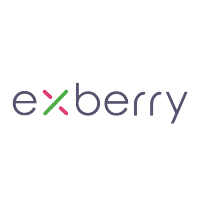
Exberry, the exchange technology pioneer, and Digital Asset, the creators of the open source DAML smart contract language, today launched an end-to-end exchange infrastructure. With the new partnership, any business developing a new digital asset marketplace can launch in a matter of days with a fully-compliant, end-to-end exchange platform and a near risk-free post trade settlement registry.
Demand for trading new types of financial instruments and assets is exploding, and entrepreneurs recognize the value that digitized and tokenized assets can add when launching new markets. It’s a trend that is gaining traction across a wide range of markets including private placements, equity, debt, physical commodities, cryptocurrencies, sports wagering, art, talent, and collectable market models. This collaboration between Digital Asset and Exberry means that these businesses can focus on validating and launching their market, confident in the light to deploy, fit for purpose, robust and readily scalable infrastructure technology to support their success.
Exberry’s technology provides the matching engine power to run the exchange, while Digital Asset’s project:DABL (DAML-as-a-service platform), fuels the registry functions via DAML code and integrations on the DABL platform. Registry functions include the tokenization of assets, creation of users, and the settlement of trades in near real time. The cloud-deployed exchange infrastructure addresses limitations of current exchange technologies that typically lean heavily on message-based connectivity, significantly reducing cost and time to implement.
Commenting on the announcement, Magnus Almqvist, Head of Exchange Development at Exberry, said: “We are delighted to be working in partnership with Digital Asset. Both DABL and Exberry have been built for modern marketplaces, delivering cloud ready environments optimised with easy plug and play API integration. Together we will provide businesses with the flexibility to issue, trade, and settle any type of asset and asset pair, coupled with the added security to audit your exchange’s transactions with complete ledger immutability through the DABL interface. This is a one of a kind approach that allows clients to scale with ease from micro markets to large global installations and connect to a growing ecosystem of 3rd party APIs and services.”
Eric Saraniecki, co-founder of Digital Asset said: “We are excited to work with Exberry to help build and support new market models and deliver impressive technology quickly. Exberry has emerged as a clear leader providing exchange infrastructures fit for modern markets and businesses. It’s ‘Matching Engine-as-a-Service’ concept is second to none, allowing clients to reap the full benefits of an exchange-grade solution that can be cloud-based or on-premise. With Exberry, clients are technically able to roll-out a new exchange location within a number of days - rather than the usual months or years. Together with Exberry we are delivering the next generation of exchange traded traditional, alternative, and digital assets.”
Related News
- 07:00 am
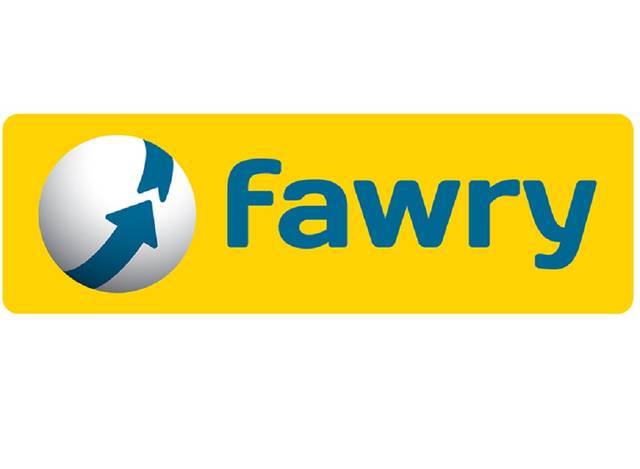
Mohamed Okasha, Fawry’s former Managing Director announced Fawry’s valuation in a LinkedIn post. Fawry, the electronic payments company is the first Egyptian company to reach a market cap of $1 billion.
Ashraf Sabry and Mohamed Okasha founded Fawry in 2009. It offers digital payments to companies and individuals in Egypt, where the population is mostly unbanked. The company started its regional expansion starting with UAE earlier this year.
Commenting on the news, Okasha told WAYA: “This is a super exciting time for Egyptian fintechs. For Fawry to reach a market cap of $1 billion within one year of its IPO is quite impressive and is a moment to celebrate. This will help the whole industry and will open more doors for fintechs to receive funds and make partial exits.”
Fintechs and electronic banking companies have seen a huge increase in demand as a result of the pandemic. Fawry saw an increase of more than 50% of the company’s value before the Covid-19 crisis. This number grew exponentially during the crisis.
The company went public on the Egyptian Exchange in August 2019, since then its stock price has increased by over 300%. The initial cost of one share at the company was EGP 6.46.
According to Fawry’s website, it handles around 2.1 million transactions daily and collected $2.43 billion last year. It has approximately 20 million customers.
This article originally appeared at https://waya.media/fawry-reaches-market-cap-1billion/.
Related News
- 03:00 am
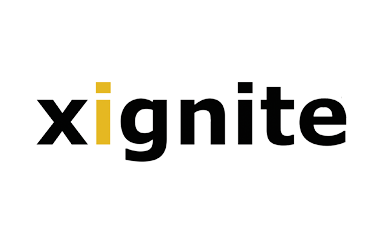
Xignite, a provider of market data distribution and management solutions for financial services and technology companies, today revealed the results of a collaboration with leading digital personal finance company SoFi on the launch of the SoFi Invest trading platform. Click HERE to download the case study containing the full results.
A longtime leader in the student loan refinancing space, SoFi wanted to help its highly educated client base in the next phase of their personal finance journeys by offering a trading platform. The firm partnered with Xignite for its ability to deliver flexible, endlessly scalable and institutional-strength data solutions at an affordable rate, and was able to launch SoFi Invest in 2017.
The result was a new line of business that continues to see substantial growth. In addition, by leveraging Xignite’s alerts capabilities (for which Xignite received a patent earlier this year), SoFi can more effectively activate its client base; when an alert is sent, client engagement increases by 25% within a day and 10% of users make a trade within the hour.
A key aspect of the collaboration was Xignite’s battle-tested cloud APIs that have enabled SoFi to make fine-tuned investment recommendations through its roboadvisor, and curate lists of stocks based on key characteristics in easily digestible formats. In addition to market data, Xignite’s Global News API enables SoFi to feature the latest financial headlines across its platform to boost engagement and inform its client base.
“Xignite data is comprehensive and easy to use,” said Sam Nofzinger, Trading and Investment Manager at SoFi. “We don’t need to contract with multiple providers to get the data we need, nor do we have to process the data in order to use it. Their APIs enable a streamlined process that allows our staff to focus on what they do best: building innovative features for our clients.”
“We are proud to have so many fintechs on our client roster, and SoFi is one of our biggest success stories,” said Stephane Dubois, CEO and Founder of Xignite. “This case study demonstrates how the right data solution can enable not just a robust trading platform and powerful roboadvisor, but also a host of other features to drive engagement, education and a better user experience overall. We look forward to continuing our work with SoFi as they serve their clients during this time of disruption.”
Related News
- 07:00 am

Cash flow management has always been critical for small and medium businesses – but during a pandemic, it can be paramount for survival. To help businesses of all sizes in the insurance, gaming and entertainment, gig, rebate, and government program industries get faster access to cash, Mastercard and AptPay today announced the integration of Mastercard Send – a global push payments platform that enables funds to be sent securely and in near real-time into any payment card or account – into the AptPay platform.
With the integration of Mastercard Send, companies using the AptPay platform will be able to send digital payments seamlessly and securely in near real-time through bank accounts, prepaid cards or digital wallets. Businesses can also reduce cheque-related expenses and fraud, with more transparent payment information and the ability to approve, reject or reverse payments as required. In Canada, more than 70% of small and medium enterprises and nearly 60% of large corporations still use cheques to pay for business expenses.[1] Using cheques, however, comes with costly hurdles and long timelines due to numerous manual processes, such as printing, mailing, reconciling information and visiting bank branches. Payments are also cleared in batches, which can take days to settle.
“COVID-19 has amplified the need for businesses to digitize and automate their payment processes, to free cash flow and eliminate the friction caused by handling cheques,” said Sue Hutchison, senior vice president of Product, Digital and New Payments at Mastercard in Canada. “With Mastercard Send, businesses and consumers can expect to receive funds directly, securely and in near real-time.”
“Over the last few years, digital transformation and faster payments have been top priorities for many industries. COVID-19 has created the perfect storm, highlighting the problems caused by not having these priorities in place. AptPay’s Digital Payment Hub enables companies to execute on these priorities and weather the storm,” said Suganthan Vishnu Krisnarajah, CEO of AptPay. “Using our APIs, companies can easily implement Mastercard Send to process payouts where the end to end process is much faster than legacy payment types. Customers can also rely on AptPay’s compliance services to ensure transactions are safe and secure, and meet the compliance needs for their industry.”
SOURCES
[1] https://www.payments.ca/sites/default/files/report_costs_of_payments_processing_eng_final_2018.pdf
page 8









